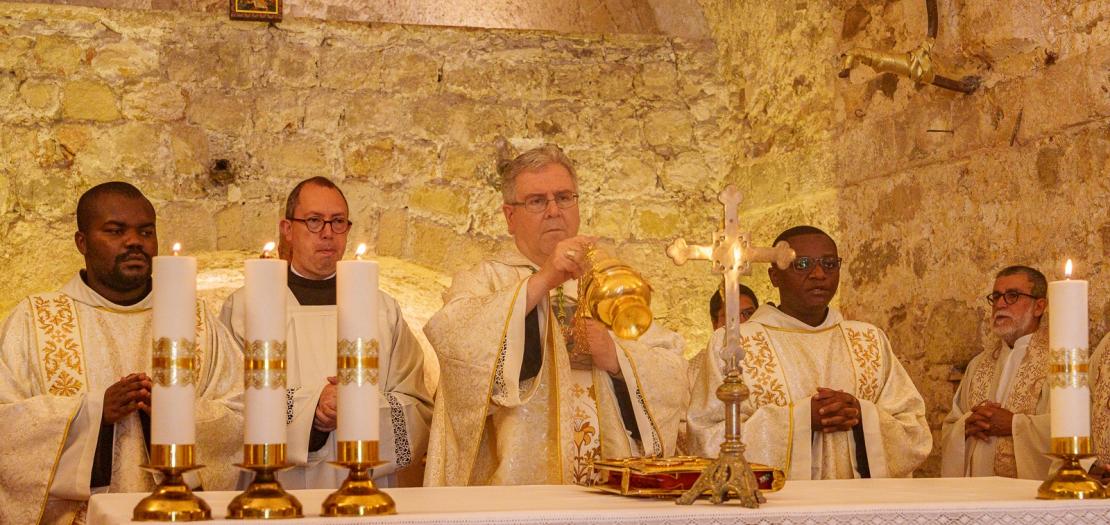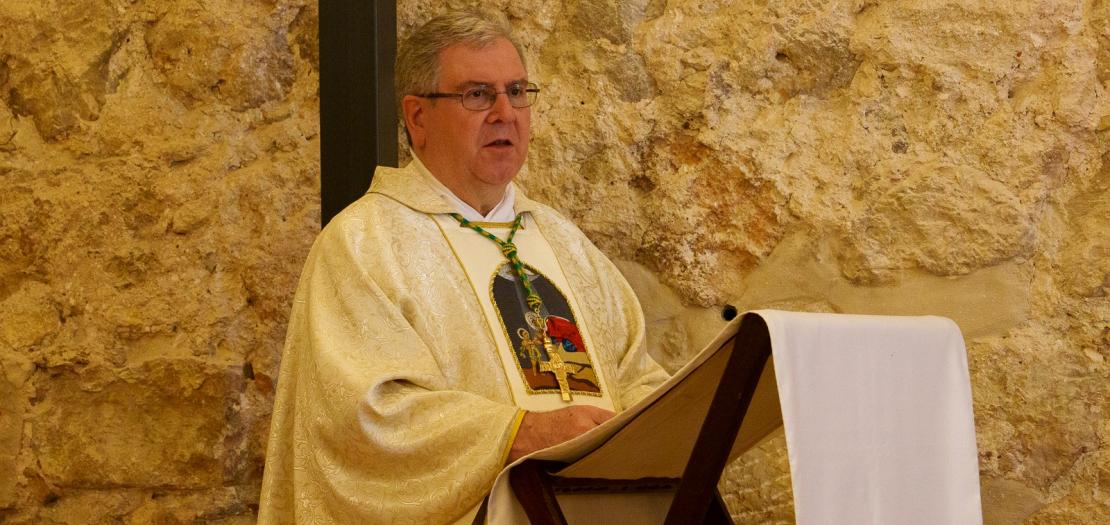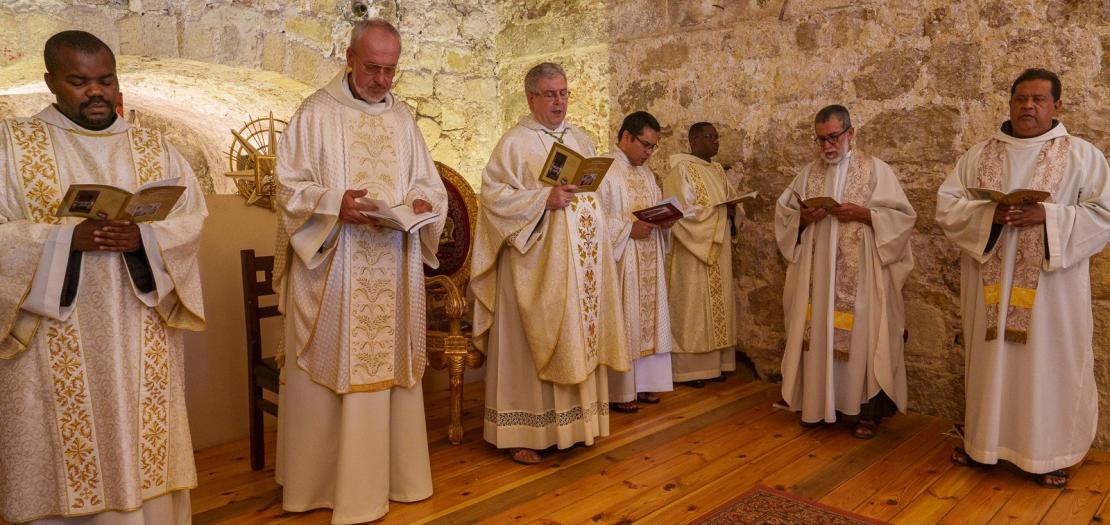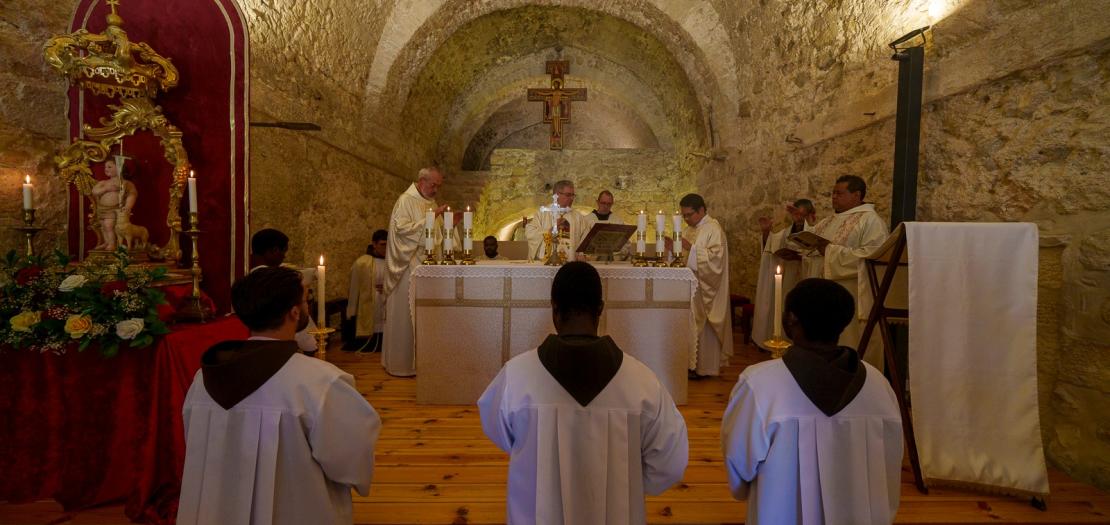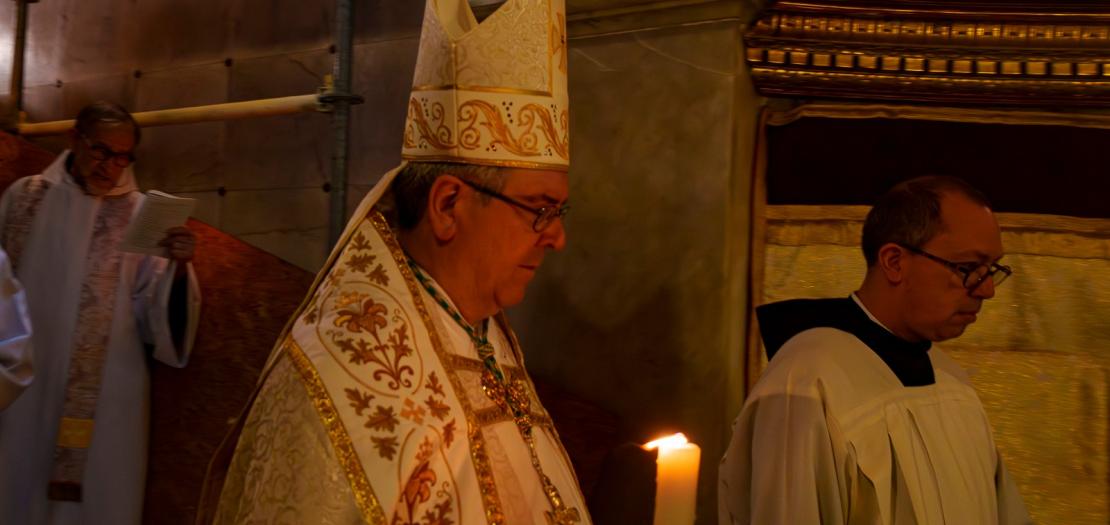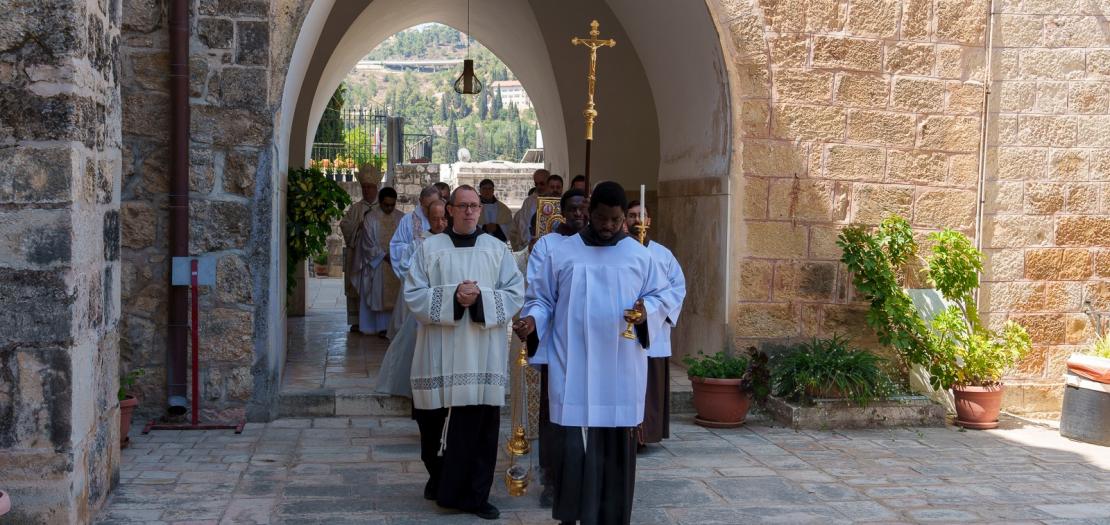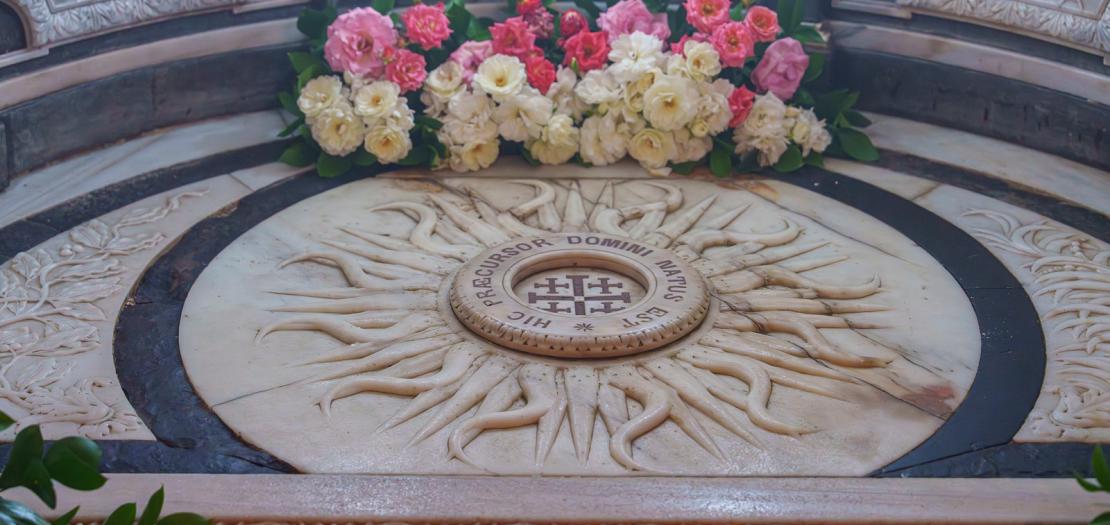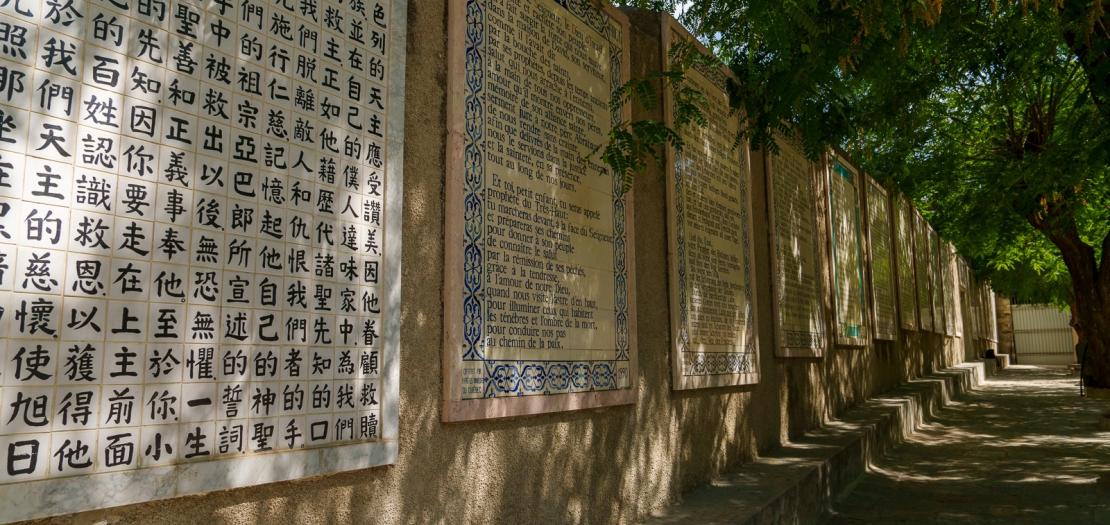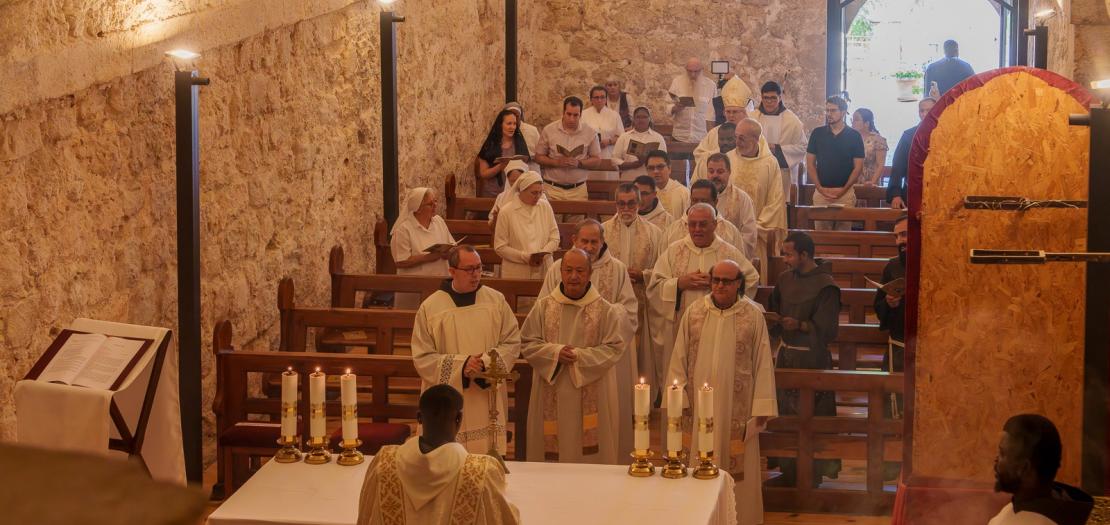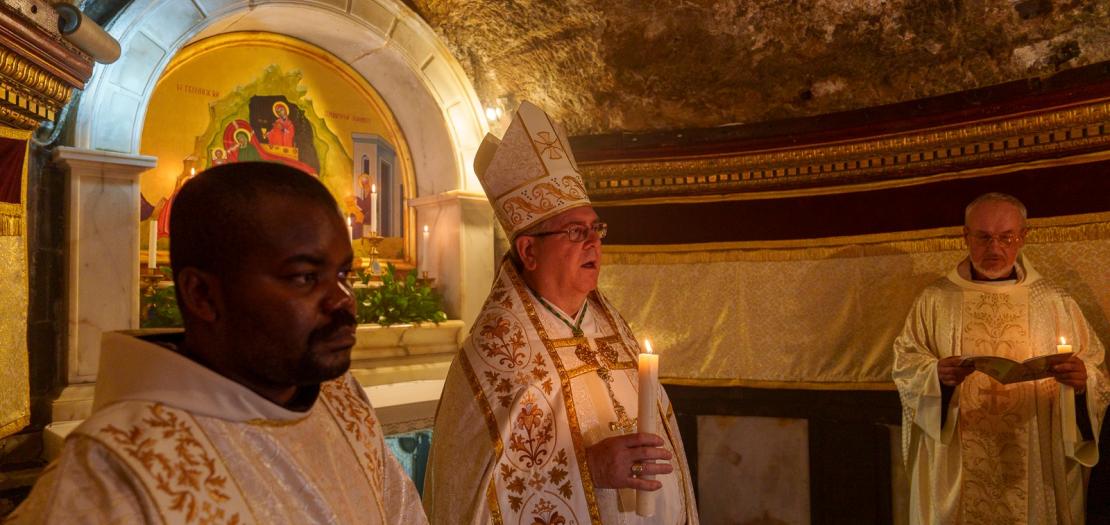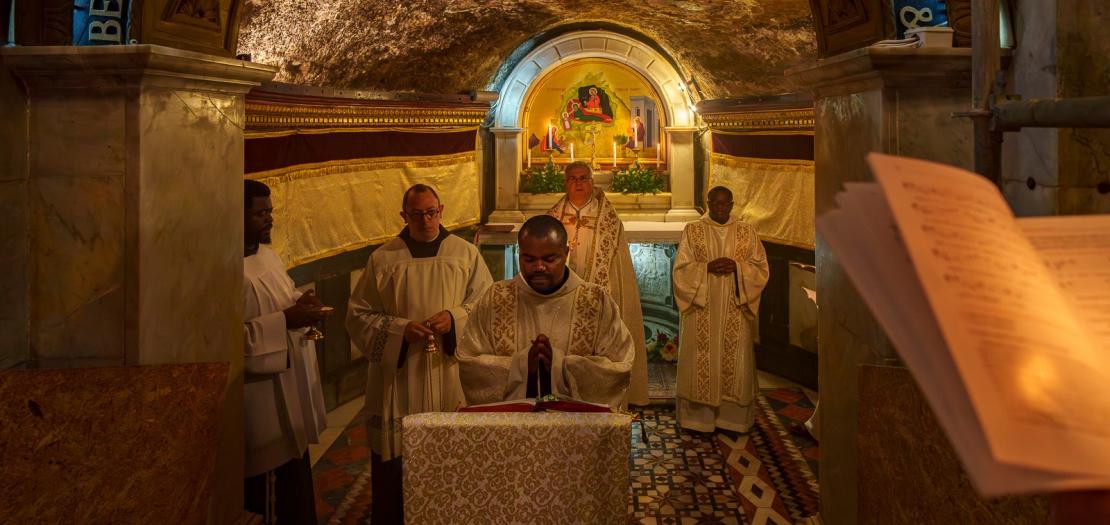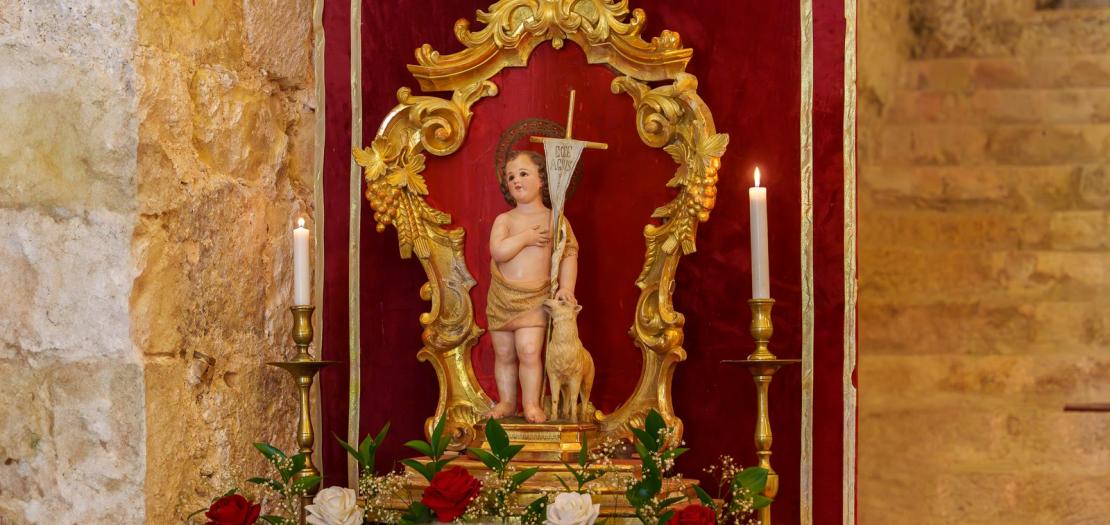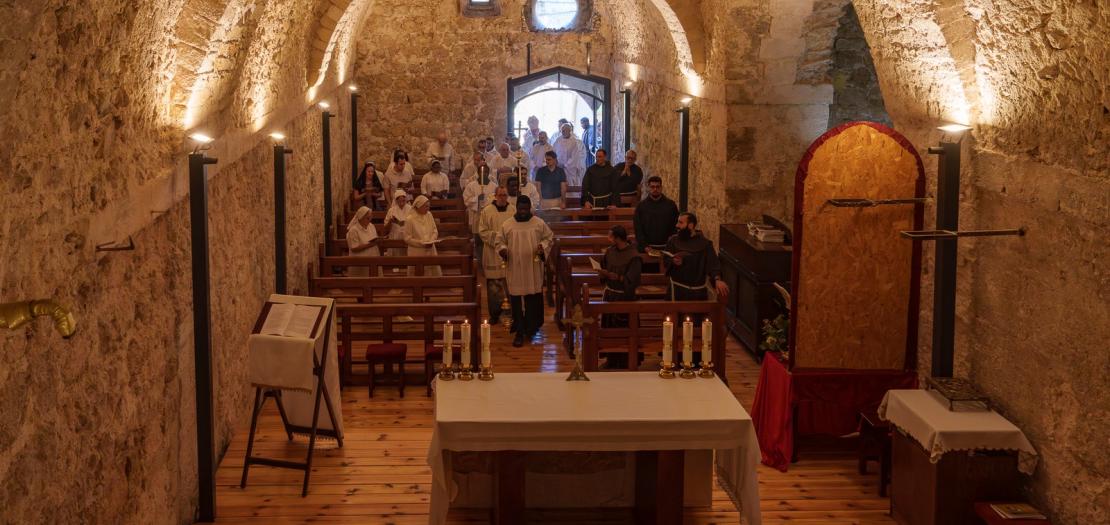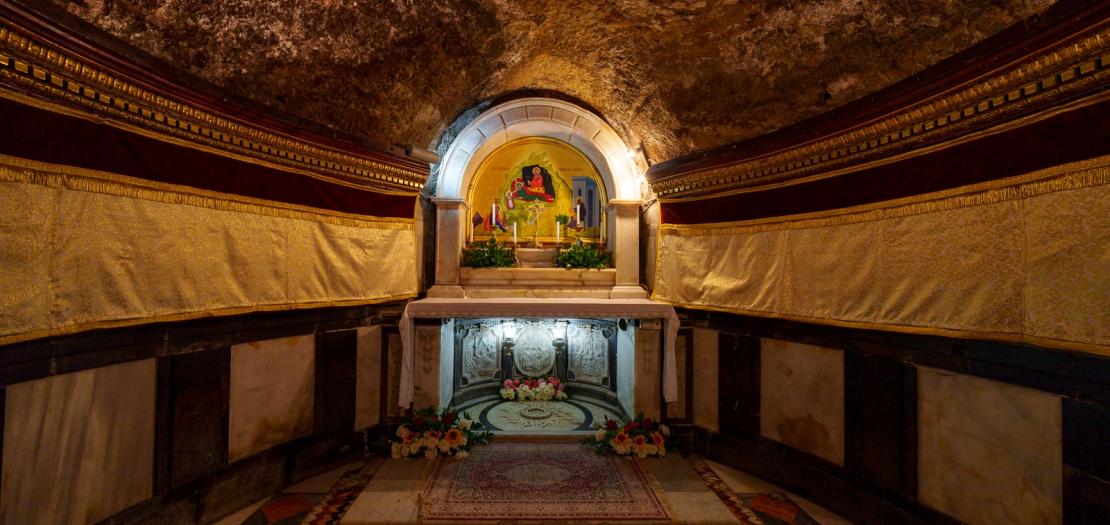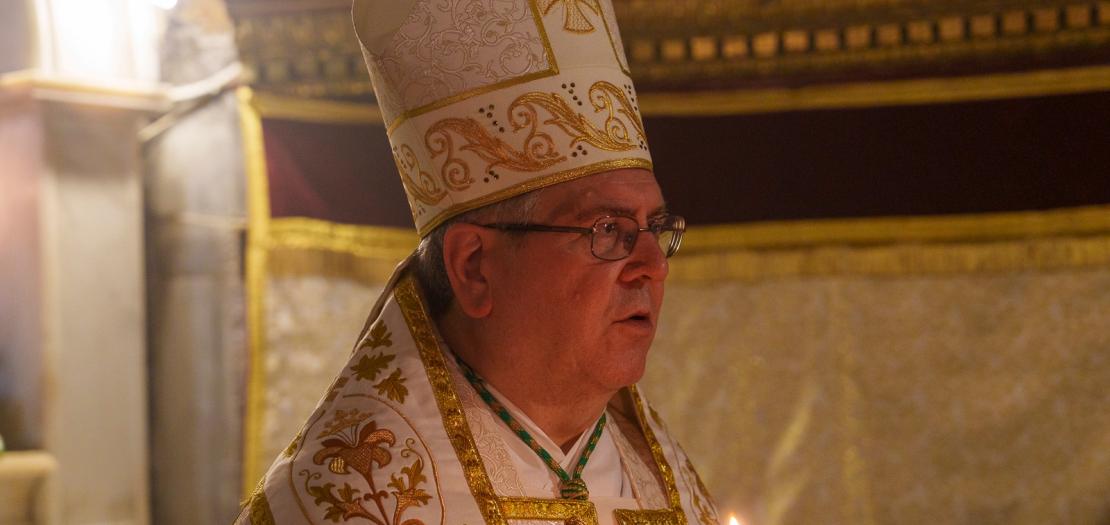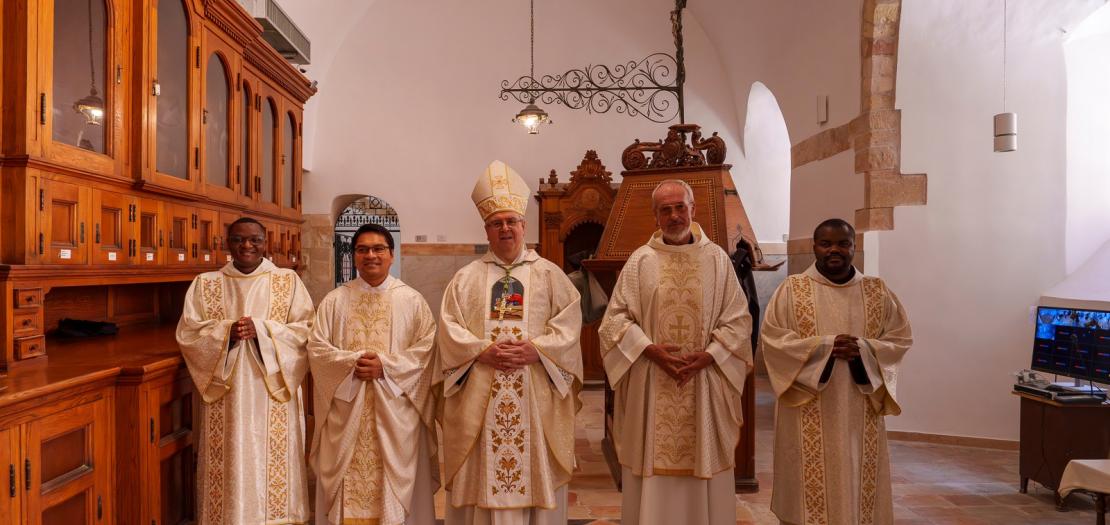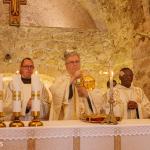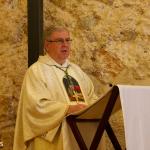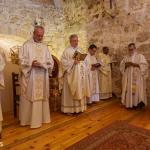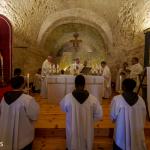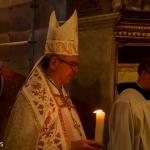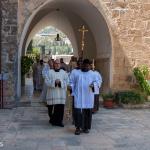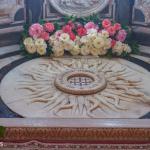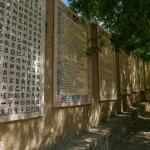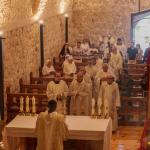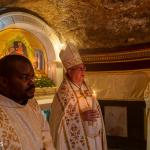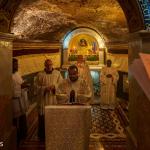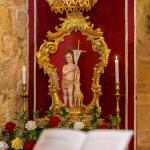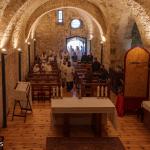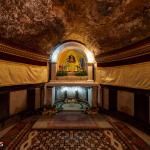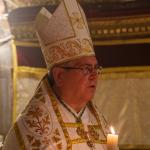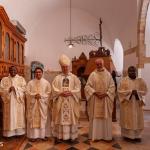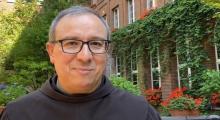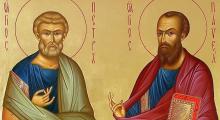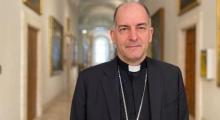Issued by the Catholic Center for Studies and Media - Jordan. Editor-in-chief Fr. Rif'at Bader - موقع أبونا abouna.org
In the evocative village of Ain Karem, nestled among the hills west of Jerusalem, the Custody of the Holy Land celebrated the solemnity of the Nativity of Saint John the Baptist. On June 24, in the grotto-shrine which tradition holds as the birthplace of the Forerunner, a very reduced celebration was held due to current limitations. The mass was presided over by Fr. Francesco Patton, Custos of the Holy Land.
The liturgy drew attention to the mystery of John's birth, he who would prepare the way for the Messiah. His coming into the world, narrated in the Gospel of Luke, is marked by an extraordinary event: the muteness of his father Zechariah is lifted at the birth of the child, and his first words are a hymn of blessing.
It is precisely this Canticle of Zechariah that provides the key to understanding the entire life of the Baptist:
"And you, child, will be called prophet of the Most High, for you will go before the Lord to prepare his ways, to give his people knowledge of salvation through the forgiveness of their sins." (Luke 1:76–77)
Fr. Patton referred to these words to emphasize how the mission of the Baptist is to bring to the people "knowledge of salvation", that is, a concrete and living experience of God's forgiveness.
"For the canticle of Zechariah" – he said – "knowledge (meaning experience) of salvation consists in the remission (that is, the forgiveness) of sins, just as for an insolvent debtor salvation consists in the cancellation of his debt."
The Custos wanted to explore the concept of sin, recalling that it has a double dimension: personal and collective.
"Sin is a free and voluntary departure from what God proposes to us as our true good," he explained, while also highlighting the existence of "structures of sin" in which we are immersed as a society and as humanity.
Fr. Patton cited Saint John Paul II, who defined these structures as "choices of selfishness and short-sightedness," "mistaken political calculations" and "reckless economic decisions", linked to "greed for profit and thirst for power."
The figure of John the Baptist – Fr. Patton explained – is not only linked to his own time, but continues to speak today:
"John is able to interpret the historical moment in which he lived and to help us interpret the historical moment in which we are living."
In the face of the many conflicts and injustices afflicting the world, the message of the Forerunner is a call to responsibility and conscience: "we need to once again accept the call to conversion from john the baptist, which opens our eyes and enlightens our consciences."
The homily concluded with a strong call to conversion and reconciliation:
"Jesus, the only one capable of guiding us on the path of peace, reconciles us to the Father and to one another in his own blood, that is, by giving his life and making an act of infinite love," said Fr. Patton.
Finally, he invited everyone to bless God for giving the world John the Baptist, a child who chose to remain small to make room for the only Savior. And he concluded with a prayer: "let us ask for the grace to personally and as a whole humanity experience the knowledge of salvation through the forgiveness of our sins and to finally walk, as a reconciled humanity, on the path of peace."


